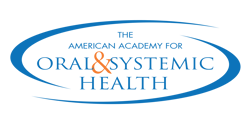Medical Billing Helps Save Lives - 3 Ways of Cross-Coding
Eating, breathing, a good night’s rest and being free from infection are basic health necessities. Increasingly, patients are visiting their dentist for oral systemic health needs, and medical insurance is taking notice. These health-oriented dental practices are now collecting more medical benefits than ever before.
You can save lives, prevent disease and even help relationships in a dental office.
Eating, breathing, a good night’s rest and being free from infection are basic health necessities. Increasingly, patients are visiting their dentist for oral systemic health needs, and medical insurance is taking notice. These health-oriented dental practices are now collecting more medical benefits than ever before.
Many Services May be Billed to Medical
Oral Infections: Medical insurance considers payment for services which are “medically necessary”. While hygiene visits are mostly considered as a “dental necessity”, some medical policies have created benefits for prescription antibiotics and “medical in nature” services such as the removal of abscesses or cysts, accidents to teeth and oral surgeries.
Sleep Apnea: Oral Appliance Therapy (OAT) is now considered a first line of treatment for obstructive sleep apnea. A Nierman Practice Management survey of dentists, who are cross-coding from dental to medical, revealed that the majority of medical insurance companies reimburse for oral appliance therapy for obstructive sleep apnea. Insurance companies know that treating obstructive sleep apnea saves money and lives, in the long run, by preventing strokes and other secondary complications. OAT claims require documentation including a sleep study, a written order from a physician and your SOAP notes and letters. It’s important to send your SOAP narrative letters to the patient’s physicians and insurance to coordinate treatment and reimbursement. Medicare now reimburses for Oral Appliance Therapy, as of January 2011, and requires additional paperwork such as becoming a Durable Medical Equipment (DME) supplier and using Medicare specific appliances and labs.
TMD: Our survey showed that many medical insurance companies reimburse for appliances for orofacial pain and TMD. The Nierman survey revealed it is important to perform a benefit check of the patient’s policy for this diagnosis. A letter of “medical necessity” from the dental office is essential to demonstrate pain or dysfunction as a result of the TMD disorder.
Determining if the Claim is Medical or Dental
It all starts when a patient is asked to complete a checklist, which assists the dentist in assessing oral conditions and its impact on overall health. Patients are asked to indicate whether they have difficulty masticating, chronic head or facial pain, snore or have been prescribed a CPAP. Dentists should note any past attempts at treatment. When reports of snoring or chronic pain are reported, a more extensiveproblem focused history and exam is scheduled. This exam and the radiographs may be reimbursed by medical along with treatments, when medically necessary.
Cross-Coding billing involves a medical claim (CMS 1500), ICD diagnosis codes and CPT medical procedure codes. Medical insurance requires specific narrative reports and other documentation to show medical necessity.
For more information Rose Nierman will be presenting Cross-Coding: The future of medical billing for dentists on Saturday September 21st at the AAOSH 2013 Annual Scientific Conference in Las Vegas.
